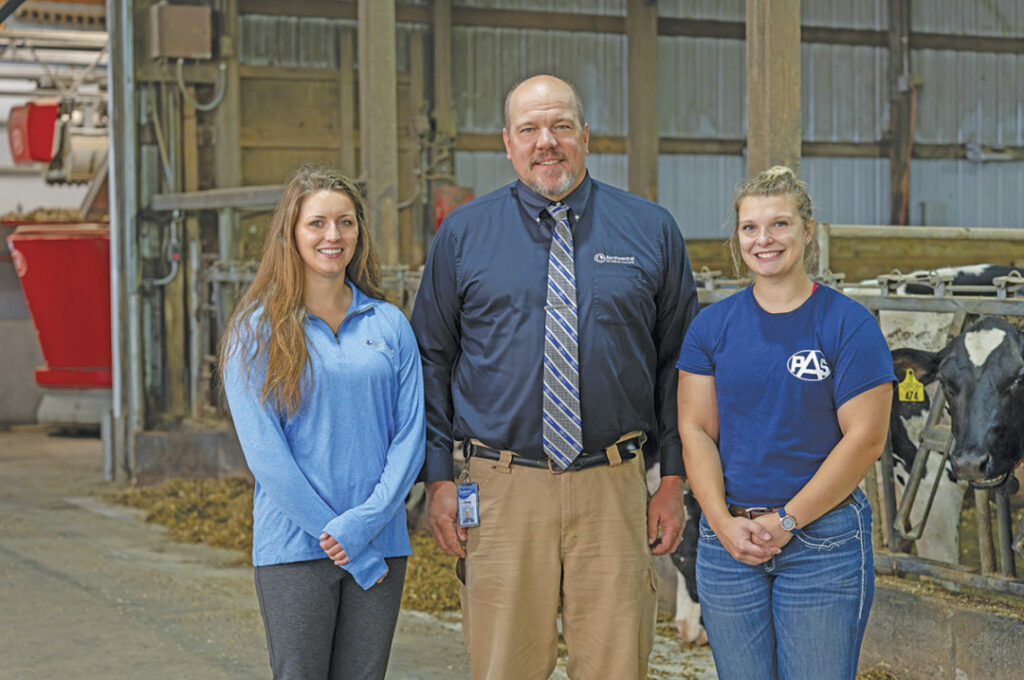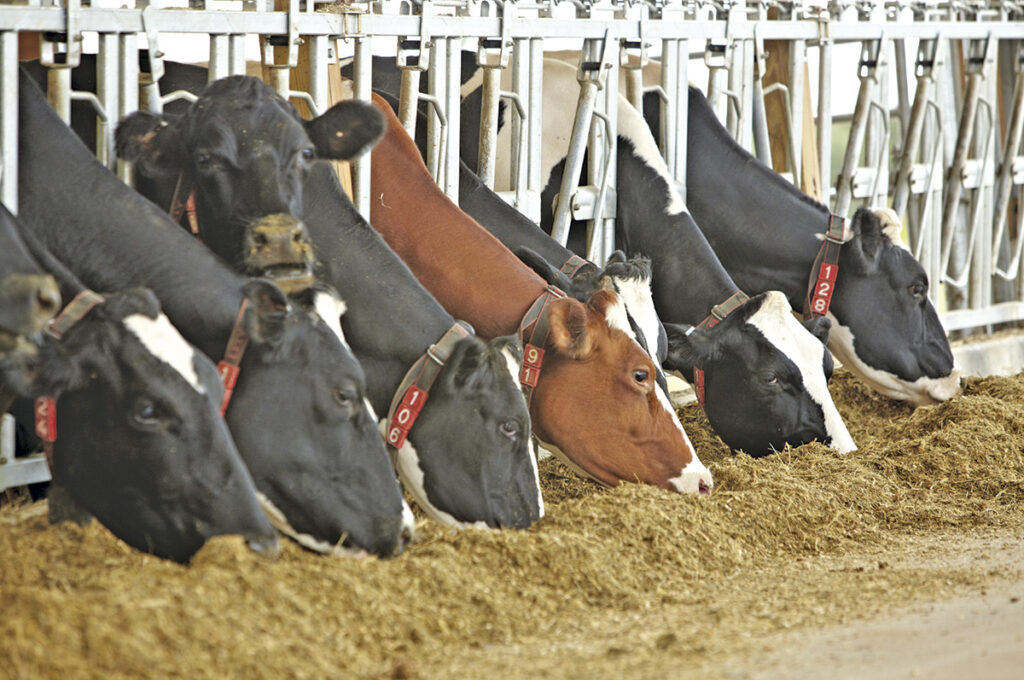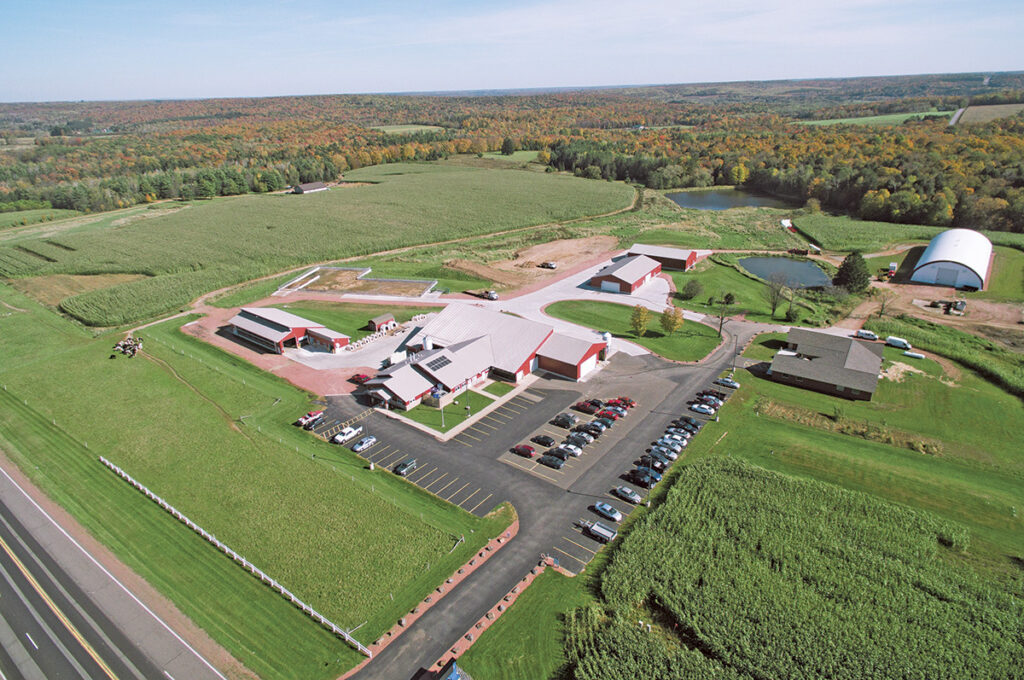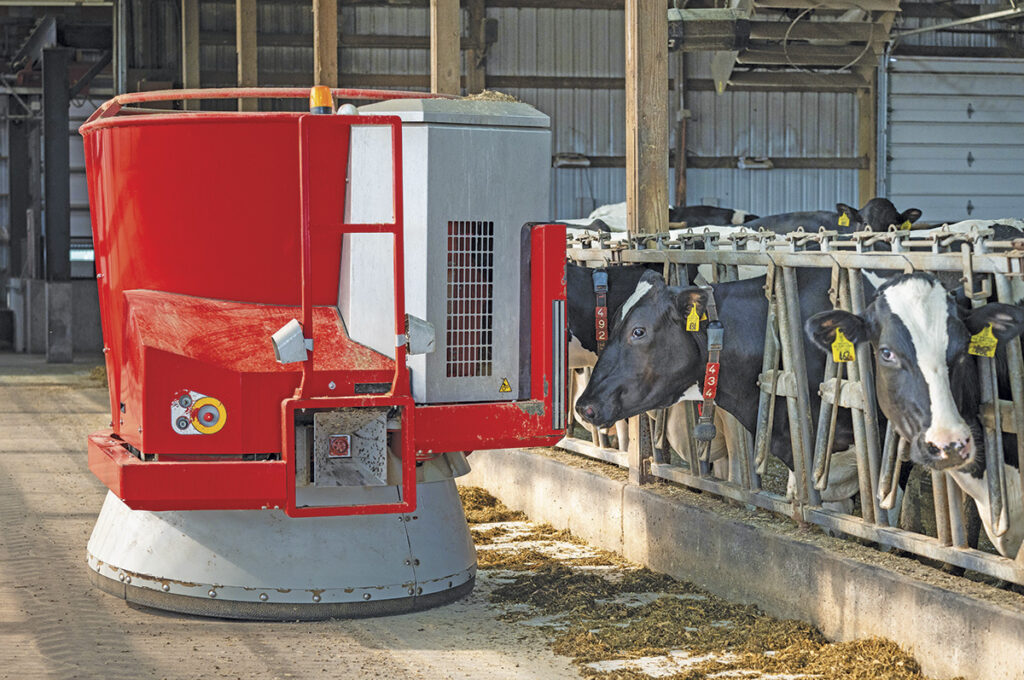Technology: Theme for a Community-Centered Technical College

November 7, 2023
Northcentral Technical College provides students with valuable insights to implement in their respective agricultural careers through five dairy robots and many hands-on experiences.
Life after high school looks different for everyone, as each person’s path is unique. However, colleges including Northcentral Technical College are dedicated to offering experiences and hands-on opportunities that can serve as valuable foundations for future careers.
“It was nice coming here and learning how they do things and asking why they do it. That’s just another way of learning,” says Emily Beyer, Northcentral Technical College student in the veterinary technician program.
With experiences on both small and large dairy farms, Beyer sought answers to the “whys” and “hows” behind common farm issues like milk fever. Four years after high school graduation, she embarked on her college journey to dive deeper into these questions.
“I learned about the exact chemicals lacking in the cow besides it being a down cow after just having a calf,” Beyer says. “I learned the cow is pulling calcium from the bones and is not producing it fast enough as it’s taking it in.”
These “light bulb” moments – like Beyer’s eagerness to answer her questions – are what excite Greg Cisewski, School of Agricultural Sciences, Utilities and Transportation dean and previous technology and engineering high school instructor.

Seeing the students come to the college full of desire to learn and progress as they start and then leave so confident and full of knowledge is what Cisewski says he enjoys most about working with the students. He believes this is beneficial to the dairy industry.
“Our industry is in need of our graduates, and making that connection between everyone is a happy ending for everybody involved,” Cisewski says.
Many opportunities are provided for students to gain hands-on experience. For instance, Beyer’s enrollment in the veterinary technician program allowed her to extract a rumen sample from a cow to closely look at under a microscope. The cow – which is known as a fistulated or cannulated cow – has been surgically fitted with a cannula that allows access to its rumen. The opportunity provided Beyer with a unique learning experience she hadn’t encountered before.
Beyer also works part-time on the dairy farm and is active in youth leadership organizations like the National Professional Agricultural Student Organization (PAS), which has helped her learn and grow as a student wanting to stay involved in the dairy industry after college.
Located in one of Wisconsin’s most densely populated dairy cow counties – 62,000 cows in 2021, ranking the county second in the state, according to the 2022 Wisconsin Agricultural Statistics – the college’s farm attracts over 100 students on an academic day when classes are in session. Nestled in the village of Maine, just outside Wausau, the Agriculture Center of Excellence covers 117 owned acres and is home to a 50-cow Holstein milking herd and 50 heifers, calves and dry cows.

The center offers 12 programs, including a dairy science associate’s degree. Students gain insights into barn design, computer applications and the unique care from calf to milking cow stages. Cross-program interactions, such as a business management course, encourage networking and diverse learning opportunities.
“We try to crossover classes as much as possible,” Cisewski says.
For this reason, Beyer enjoys hearing about other students’ experiences who are enrolled in other areas the college provides.
“It’s great because students not even in the same program interact with each other,” Beyer says. “It’s really cool when the programs tie together and assess the situation and you have different views on it. We can then teach somebody about our knowledge.”
Students also experience much of the technology on the farm, and learn how to use the data provided by the dairy farm’s five robots.
“Agriculture is ever-changing, and we’re getting them ready to enter that space. They should be prepared to learn the next greatest things happening and continue to develop and hone in their knowledge,” Cisewski says. “Technology is going to be a focus as we move forward because we’re continuing to try and utilize the technology of tomorrow to feed the people of tomorrow.”
Around the farm, there are many opportunities for hands-on learning. When walking through the barns, you may see a robot pushing the feed for cows to eat or mixing the feed together. A second and third robot can be found cleaning the cow pens and a fourth to feed their calves. Most recently, the fifth robot – a Lely Astronaut A5 milking machine – was upgraded in September of 2021. However, an automated milking system has been a part of the herd since the start of the farm in 2012.

Agriculture 4.0 is a focus of the college highlighting technology and how the agricultural industry can best use it. Cisewski describes previous industrial revolutions that pivoted agriculture as steam then automation then computer. Now, it’s computers talking to computers.
“I think that agriculture 4.0 is going to bring all that technology to the forefront and bring people together around it,” Cisewski says. “For us, it means what are we doing with our curriculum that best fits the technology and then what are we doing with our spaces on the farm to make sure we’re able to deliver that.”
Additionally, there’s a window overlooking the milking robot for visitors to see the entire process. Education is important in the community, so every fall the center partners with the local FFA chapter to bring 500 fourth-grade students to the farm. In the observation room, you can see pictures of the charter herd, named by a partnership made with the local elementary school.
Many future students also come to tour the farm. Cisewski has seen a shift in more females in courses than when he started at the college in addition to the background of students in the dairy industry.
“We see a wide range of students,” Cisewski says. “They sometimes have an association with somebody in the dairy industry, and sometimes it could be they are a generation removed from dairy farming, but there is a connection there. Today we are seeing fewer students coming from families currently dairy farming.”
When agriculture outreach specialist and assistant farm manager Jenna Breitenfeldt speaks with prospective students, she tries to reach anyone wanting to learn more.
“I tell people if you like to eat, then agriculture might be a good fit for you,” Breitenfeldt says, whether it’s a college education to learn more about the industry or as a career professional. “Agriculture is the backbone of America. We can’t farm or have food or clothes without it.”
